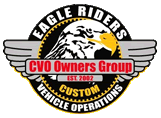big John she is going to kill you now anyhow if she ever hears that horn blow


But i found the article from A.I.M. Feb 2006. Its a 92 sporster that does FLASH races 87.3 cubes, 126 hp doesnt list the trq. best Et at that time 10.16 AT 135, And spanks "busas" on a reg basis , and has done more up grades since, cam is a red shift 567 , Thata almost 9 seconds in a qtr mile! this sporster im sure it can kill a v-rod no problem , stock frame, swing arm , Tell me torq isnt a major factor here, to beat sport bikes in a qtr mile. you have to be quick , and its steet driven daily
And so if your guys say hp is the key to dyno happiness ? are these proven and winning national record holders wrong? and your right because the dyno results and hp is better?

, someone has to prove them wrong first and thats not going to happen is it? No a cvo dyna wont beat a v-rod, but it could, and thats not a even comparason could big johns 09 ultra beat a v-rod? yep it will.
Going to the 70's muscle car scene, which was the quickest STOCK production car made??? It was the buick GSX grand sport,with a 455,
(as reported by motor trend magazine) why? 510 ftlbs of torq @ 2800 and only 360 hp some say 400 hp, They spanked the 426 hemis and 427's in 1/4 mile races, It Doesnt matter what car or bike it is the torque is the major portion of a winning 1/4 mile race
 Author
Topic: Deciphering Dyno Numbers? (Read 12307 times)
Author
Topic: Deciphering Dyno Numbers? (Read 12307 times)

